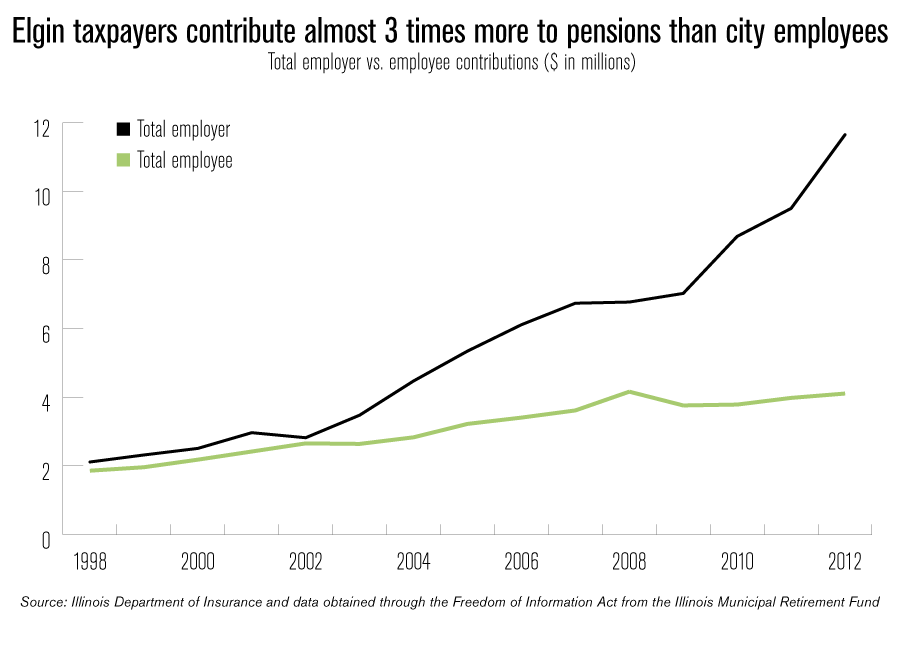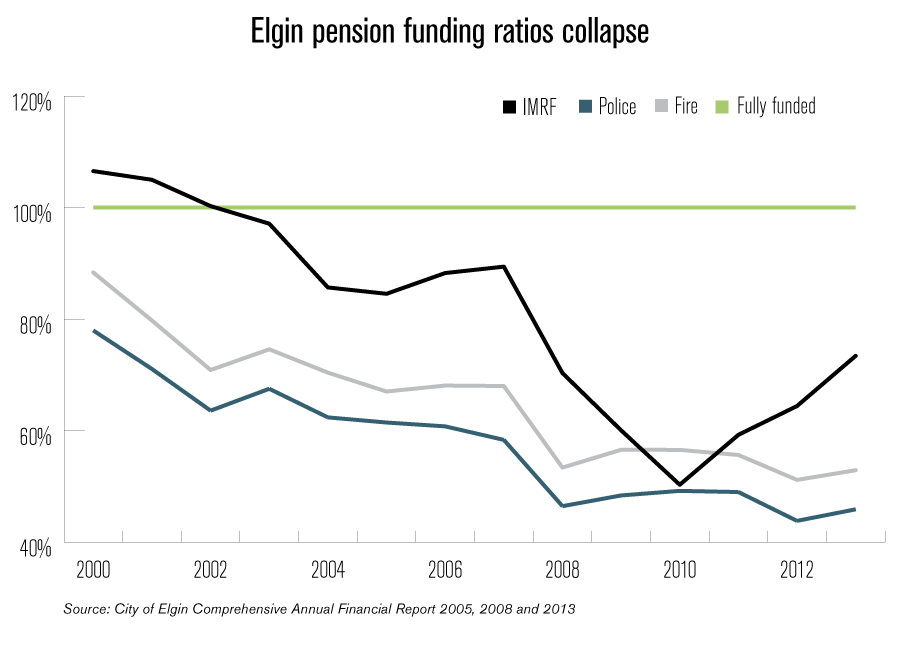Elgin taxpayers contribute almost 3 times more to pensions than city employees
Local pension crises are severely affecting cities, towns and villages across Illinois. Even local governments that have a good track record with transparency and high credit scores are struggling to pay for pensions. Take the AAA-rated city of Elgin, for example. To get its pension system’s funding level up to par, the city would have...
Local pension crises are severely affecting cities, towns and villages across Illinois.
Even local governments that have a good track record with transparency and high credit scores are struggling to pay for pensions. Take the AAA-rated city of Elgin, for example.
To get its pension system’s funding level up to par, the city would have to completely shut down its government for more than a year and a half and pump every general fund dollar into pensions.
Facing a $164 million pension shortfall, the city, and by extension its taxpayers, now contribute almost $3 into the pension system for every $1 a city employee contributes. This trend is no longer sustainable.
Elgin has already gone through a series of tax hikes to try to curb its budget problems:
- Elgin passed a 3 percent alcoholic beverage tax in 2012 – raising more than $1 million in revenue.
- Elgin adopted a municipal electricity use tax in 2012 – raising nearly $5 million dollars annually.
- Elgin adopted a municipal natural gas tax in 2012 – raising nearly $2 million annually.
- Elgin increased the city’s home rule sales tax to 1.25 percent from 0.75 percent in 2012.
Despite these efforts, the city of Elgin’s pension funds have worsened. Pension funds that were close to fully funded in the late 1990s are now severely underfunded – with police and fire funding ratios at only 46 and 53 percent funded, respectively.
Elgin needs real pension reform. The problem is that Elgin officials have too little power to enact it. The state sets the rules – determining things like retirement ages and cost of living adjustments – and the city is forced to front the bill. Any reform Elgin would consider passing must be moved through Springfield first.
It’s time for the state to stop running local government pensions into the ground. Springfield should allow local workers and leaders to control their own pension systems.


